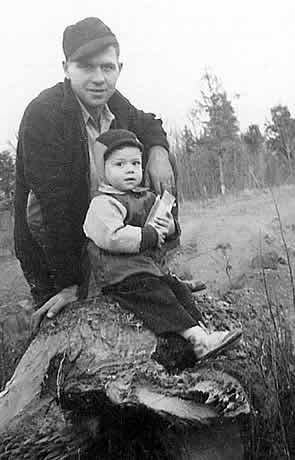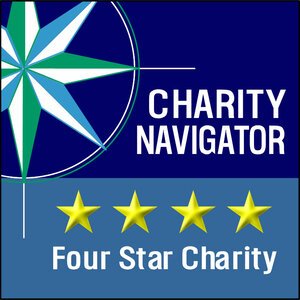Poet Paul Zarzyski's unconventional style has no-doubt influenced the trajectory of cowboy poetry. Before his first performance at the Elko Cowboy Poetry Gathering in 1987, cowboy poetry rhymed. These days, poets are just as likely to write in free verse as they are to employ the traditional rhyme and meter. Paul has continued to push the envelope over the years with his subject matter, his recordings of poetry backed by jazz music, and the lyrics he has written for and with his musician friends. Now he has done it again with his new book 51: 30 Poems, 20 Lyrics, 1 Self-Interview. Darcy Minter, Western Folklife Center Communications Director, recently interviewed Paul about his book.
DM:I’m a little intimidated to interview you since you’ve already asked yourself all the questions you always wanted to be asked. You didn’t leave much for the rest of us! As someone who has wrangled you into participating in many bad interviews with the news media, I will apologize in advance for my questions… Let’s start with the unusual format of this book. You’ve published a book that doesn’t fit neatly in any category on any bookstore shelf. It’s poetry, it’s song lyrics and it’s memoir (sort of). We’ve learned to expect the unusual from you. Were you trying to push the envelope with this format?
PZ: I honestly don’t recall that as my primary intention. I realized early-on, obviously, that the format is somewhat of an anomaly and I must’ve considered for an instant that it might present difficulties for readers who prefer their freezer fowl traditionally packaged and labeled: 1 Turkey, 1 Duck, 1 Chicken, as opposed to 1 Turducken. I guess I saw the poetry/lyric/prose interactions between the same covers as an artistic challenge I was itching to encounter. It cost me my first publisher, a dear friend of purt-near 40 years, who stuck with me through a number of permutations and/or edits until the prose, the Self-Interview, began to drift further and further toward memoir, which he deemed way off kilter from the original conception, which, if I remember correctly, focused almost entirely on my personal approach to the page, on the writing process. The “divorce” broke my heart, and almost broke my spirit, to boot. I seriously thought about shit-canning the project altogether. At one point, my friend suggested we drop the lyrics and interview and “simply” publish the poems. It made sense—too much sense. That’s when the enigmatic, anarchistic, iconoclastic, pugnacious, EYE-talian cells of my tenacious make-up kicked-in and thus I decided to bring my vision to fruition, publisher or no frickin’ publisher, audience or no frickin’ audience. IfI was trying to push the envelope, it was the envelope addressed solely to Paul Leonard Zarzyski. I was on the fight— “doing roadwork in the boneyard, shadow boxing my own stone—my epitaph reads DoOr Die, either way, I’m on my own,” to summon up a metaphor from one of the lyrics in 51. I’d already lost my Dad and my dear poet-friend Quinton Duval, and was on the brink of also losing Mom and another dear poet-friend Trish Pedroia. I was devastated and pissed-off, both— looking for a pushing match with the envelope, with myself. All to say, “it” was a lot more complicated and/or convoluted than simply deciding to foist an unorthodox format onto the reading public. Maybe you can recommend a good shrink to help sort this all out?
DM:I am going to concentrate many of my questions on your self-interview if that’s okay with you. Can you talk about the experience of writing prose after focusing for so many years on poetry?
PZ: I suppose it was a bit akin to guitar maestros Eric Clapton or Rich O’Brien deciding in their late fifties to take up the accordion? Not, mind you, that I’m anointing myself the Clapton of Poetry. Rather, merely to suggest the difficulties I encountered. I mean, paragraphs are nowhere near jagged enough on the right, you know? On the flip side, if someone parsed my poems, I’m bettin’ they’d discover that most are written in complete subject-predicate sentences. I vaguely recall teaching, between rodeos, technical writing to forestry students back in the ‘70s and ‘80s. I think a few of the rules of good prosemanship resurfaced out of the muck and mire of my classroom gray matter past. I refused, for better or worse, however, to let go of the impasto, musical diction I am so fond of when coaxing my poems to sing, to roar, to wail, to howl, to make a lot of “noise,” as my mentor Dick Hugo once referred to his own affections for the ring and ricochet of lingo, the symphonics of the English language. My ultimate editor for 51, Allen Jones of Bangtail Press, did his best to hot-shot me away from my poetic addictions in the Self-Interview— thank goodness, with at least a modicum of success, in spite of my fighting him every syllable of the way. If readers appreciate my prose in this collection, they have not me, but Allen, to thank for it. He deserves some major editorial award for the efforts he invested into bringing 51out of the shadows and into the light. Hell, he likely could teach Clapton to play the accordion!
DM: Why the aversion to paragraph breaks?
PZ: Because the pauses screw with my belief that the strongest, most honest, interview responses are derived via stream-of-consciousness approaches to an answer, which, in turn, allows the interviewee to eventually discover and then to address the question that the interviewer should’ve asked in the first place, but could not, because he or she seldom, if ever, knows enough about the interviewee’s psyche to even begin to scratch the surface, when indeed the mission of such exchanges, in my opinion, is to “mine”—with dynamite if need be—the heart and mind and maybe even the very soul of said interviewee. Otherwise, why even bother? Ninety-nine per cent of the interviews you read are insipid drivel, filled with vapid self-aggrandizing pap, in no small part because the questions posed are so inane, likely a repercussion of—and I’m going to be gracious here—assignment and deadline constraints, not to even mention the need to spoon-feed a more-often-than-not lazy readership (there goes my graciousness up in smoke, ‘ey?). Nobody understands this better than Bob Dylan, who’s well-known for his emasculations of journalists. Simply, I use words like timbers and ropes and stones from which I build the bridges over bottomless crevasses, across flaming, seething molten lavas flows, so I can explore and discover what’s on the other side, what’s outthere. Paragraph breaks—in this case, anyway— compromised the architectural soundness of the structures facilitating my journeys of “crossing over.”
DM:Did you choose to interview yourself because you wanted to be more direct than you could be in a poem?
PZ: Very good question. So now I suppose you’ll expect me to first admit here that you might be one of those rare interviewers who can bust through, who can frack the hardpan? Okay, maybe you are. Some of my poems, especially in 51 are pretty damn direct. I believe the Self-Interview allowed me to pose questions that, for whatever reasons, I’ve never—at least, not to date—grappled with in my poetry. I’m guessing that the prose did not, however, prompt me toward a greater “directness” than have my poems. Most definitely different conflicts, different “destinations of resolution.” As well as different “bridge trajectories”—paths of both least, and most, resistance—leading to those answers or epiphanies or revelations on the other side? That mind-doctor you recommended earlier? What was her name and phone number again?
DM:You say that writing song lyrics expanded your creative vistas. What about writing prose?
PZ: I compliment you and then what do you go and do—get redundant on me. Just kidding. The accordion can take you to Carnival Cruise places that the guitar would be embarrassed to include on its exotic galactic tour. Nevertheless, most all fresh landscapes and skyscapes are purt-near equally welcomed in the pursuit of new creative vistas. I reveled immensely in the varying cadences inherent in prose. You got your paragraph (I did construct a few of the boogers, contrary to your observations), you got your stanza, you got your verse, chorus, bridge. They all dance a little differently to their own unique music, which, once you get tapped off, expands your writerly maps, or atlases, or star charts of the ol’ Cowpoke Cosmos, where, as I say in 51, “creativity rhymes with Infinity.” Oh, and by the way, I’m half Polish and half Italian. My very first music was likely a polka. I love the accordion. So much so that I keep a Horner case, filled with Guinness and expensive top-shelf microbrew porters, in my brewski refrigerator—it’s the only sure-bet way I can keep visiting musician friends, David Wilkie in particular, from locating and drinking all my “barley soup.” Dave wouldn’t be caught dead exhibiting curiosity for the contents of an accordion case.
DM:Your self interview exposes your feelings on so many issues: racism, homophobia, politics, religion, spirituality, art, writing, music, war, friendship, animals…and the list goes on. It has a confessional quality and as I read it I felt like you were purging yourself in some way. Do you feel relieved that you have said your peace? Did a feeling of being misunderstood prompt you to write it?
PZ: Wasn’t that the refrain of an Eric Burton and The Animals hit? “Oh Lord, don’t let me be mis-under-stood…?” Yes, I think I do feel a sense of relief to have laid my hole-cards face-up on the felt, so to speak. And, since you allude to that ridiculous catholic sacrament I once partook in, maybe the Self-Interview offers a bit of a between-the-lines flashback : “bless me father for I have sinned, it’s been 38 years and 51 days since my last confession….” More to the point of your inquiry, after a performance in Monterey years ago, an elderly rancher approached me and, in the midst of touting recent Alaska legislation allowing wolves to be shot from planes, said “I really liked your poem “Wolf Traps on the Welcome Mat,” the title piece to one of my poetry books, which is actually titled “Wolf Tracks on the Welcome Mat.” The poem—if it’s working as I believe it works—offers an open-ended view of the extremely contentious issue of wolf reintroduction in the ranching west. I talk a bit about audience in 51—how they often see and hear what they expect and need to see and hear, how they so often need to believe that you think and act exactly as they do. Why else would you dress pretty much exactly the same as they do—hat, boots, jeans, etc. when we’re talking the cowboy poetry and music genre? In bucking all stereotypical perceptions and expectations, I’d much prefer to be regarded as not only an iconoclast, but an extraterrestrial iconoclast. E.T. in a beaver lid. Don’t take me wrong—it’s an honor of immense proportions to be thought worthy of inclusion in what Buck Ramsey dubbed The Cowboy Tribe. I truly doubt, however, that Buck would have ever considered conformity as an attribute, a membership prerequisite. 51 is the most honest book I could ever write, and honesty is a cowboy virtue of utmost magnitude. I can live and die with that declaration in my head and heart. No retractions, no regrets. Although I realize full well that many of my philosophies are counter to what many consider “the cowboy code.”
DM:What role did the death of your father play in your need to write all this down? Had you finished the book before your Mom passed away? Did she have a chance to read it?
PZ: Without a doubt, Dad’s death provided the bulk of the impetus behind my frantic need to flesh out the Self-Interview. At times, my feelings of vulnerability, of mortality, were so prominent, minute-to-minute, breath-to-breath, that I feared leaving the daily work on the book here at home in order to attend festivals, to do gigs. (What if I didn’t make it back?) I remember 12-hour shifts at the desk. I remember total emotional and physical and spiritual exhaustion. In my younger years, a friend and I skidded 35-foot house logs down mountainsides steep as a cow’s face with a magnificent Clydesdale named Tom, then loaded and unloaded them by hand on a trailer. John Henry with his spike hammer against the steam-drivin’ machine. Sweat and muscle imbued with the sinew of youth, dawn to dusk. Mere child’s play compared to the shifts I put in hammering out those Self-Interview stories. All in honor of, in tribute to, Dad’s blue-collar passions. (“Once you start a job, always finish it; if you’re going to do a job, do it right or don’t do it at all.”)
I remember breaking down often into tears I had a hell of a time stanching. Was doing a lot of the editing on the computer rather than with the Smith-Corona and couldn’t read the screen during many of the most poignant episodes I so furiously was trying to flesh out. I remember moments during which I felt possessed. And then, in the torment and toil of it all, Mom died—August 22, 2010. I had been flying and driving back and forth to my home ground in Hurley, Wisconsin to monitor her caretaking activities by a troupe of angelic women I dubbed Team Delia. The mission was to keep her in her home, despite her affliction with mild dementia. We’d spent a magnificent 10-12 days together in early July—lots of stories, lots of laughter. She died as a result of a massive stroke, just 3 months shy of her 90th birthday. My friend, Quinton Duval, had passed in May, and then Trish Pedroia in November. I felt under siege. It occurs to me right this instant that I actually might’ve been using the writing, the vow to finish 51, as a life buoy. I’d written the dedication shortly after Dad’s passing. It begins, “In loving memory of Leonard John Zarzyski—November 20, 1925 to October 10, 2008…." I was already so deeply steeped in my mother’s well-being—she’d been together with Dad in the same house for over 61 years—that I subconsciously wrote the date of her birth, November 20th, instead of my dad’s, November 5th. It remained undetected through multiple edits. Serendipitously, dear friend, Buzzy Vick, caught the “error” 5 months after the book came out. Buzzy’s birthday is November 20th, and during a conversation she remarked, “I didn’t know I shared a birthday with both your Mom and your Dad.” I hope I’ve answered the first two facets of your question. As for the last, no, Mom didn’t live long enough to see the printed book. Allen, my editor, and I decided it would alter the tenor of a good portion of the Self-Interview to include mention of Mom’s death, that it would dictate a major rewriting effort, especially in light of our publication deadline goal. I did read finished manuscript passages to her at the kitchen table during my July visit prior to her death. She was fascinated by the storytelling. I can picture her sitting in her chair on the front porch smiling for hours at the photos of her on the front and back covers. Oh, Darcy, now look what you’ve gone and done—here go the waterworks again.
DM:Just scratchin’—or maybe diggin’ is a better word—at the surface Paul…You include many of your favorite quotes in the interview. For example, you quote African American poet Lucille Clifton: “I’m not here to comfort the afflicted, but rather to afflict the comfortable.” Why have you taken on this role?
PZ: Because to have shirked taking on the role—to quote one of my favorite cowboy performers, Ranger Doug of Riders In The Sky— “might’ve been the easy way, but it would not have been THE COWBOY WAY!” In all seriousness, I honestly do not know the answer to your difficult observation. Are you certain I have embraced the role? If so, it wasn’t calculated, or even welcomed. Moreover, I choose to believe that I am not the only so-called cowboy poet or musician who fulfills the role of “afflicter.” You know who they are. I’m not going to name names here and risk loss of friendship or downright litigation or the likelihood that I’ll be slipped a Mickey Finn at the Pioneer in Elko this coming February. When I rodeo’d, I seldom, if ever, turned a horse out because I was too frightened to get on him or, in the case of Kesler’s notorious mare Three Bars, her. I might not have spurred many of the good ones to the 8-second tooter, but I forked most everything I drew. “Ladies and Gentleman, out of chute number 6, the Maverick Hat chute, Paul Zarzyski on the triple-rank bronc, Afflict-The-Comfortable.”
DM:You say you deplore artistic complacency -- playing it safe for an audience. Do you think your popularity with cowboy poetry audiences is because you don’t play it safe, or somehow in spite of it?
PZ: I’d like to believe it’s the former. Most of the rodeo roughstock twisters who I idolized, as well as most of the writers whose work and lives I admire, dance the dance of reckless abandon. As difficult as it’s become in these conservative, theocratic cowboy-west times, I’d still like to think there’s a few kindred spirits out there in audienceville who’d rather hang with Paladin than with, say, Gene Autry. I hope that’s not an unfair metaphor—and certainly not one intended to disrespect Mr. Autry, who I watched religiously as a kid in the ‘50s. To couch it in similar terms, whoever wrote the scripts, and/or short stories or novels informing the scripts to the HBO series Deadwood, or No Country for Old Men, or The Unforgiven, or PatGarrett and Billy the Kid, or Hud, or McCabe and Mrs. Miller, or The Grey Fox, or The Last Picture Show, or Lonely Are The Brave, or Junior Bonner, or The Wild Bunch, or ( yes, damn it) Brokeback Mountain, or J.W. Coop, or RanchoDeluxe or The Missouri Breaks or…well, you get the picture—these are the writers who subscribe to the same cowboy-west sensibilities I embrace. Nothing “safe” about the wild-west characters, fictitious or not, in those stories, the key modifier here being “wild,” not “tamed” or “domesticated” or “fenced-in and broke.” I’ll take a Sam Peckinpah-directed film anyday over most any other western. And Paladin was my kind of Mafioso-hitman “cowboy poet.” In fact, Paladin had to be Italian.
DM:This book also feels like a tribute to the people in your life who have influenced you and enriched your life personally and professionally. Was that a conscious decision or did it just bubble up through the process?
PZ: A little of both. A number of years ago, in a piece I wrote for the Big Sky Journal, I took the liberty to revise that old saw, “you are what you eat,” to “you are who you meet.” I’ve been fortunate to know this truth for decades, and more fortunate yet to have met and have been befriended by hundreds of genuine-article, magnanimous beings from so many diverse species aboard this glorious orb. Both editor-friends of 51—the one who abandoned me and the one who stuck with me—admonished me for the excessive mentioning of names that would disinterest the average reader. I ignored the advice altogether. I only wish that I’d have insisted on the inclusion of several additional pages inside the back cover, upon which I could have more fully completed the list of all my soulful coaches, gurus, cheerleaders, mentors, friends—my parents, as I emphasize over and over in the book, the most soulful influences of all. Without all these “wilderness guides” through 60 years of life in this dimension, I’m little more than a 5-foot 10-inch high pile of flesh and blood and bone.
DM:This seems like the ultimate cowboy book to me. Not in its subject matter, but in its bravado, its grit and passion and brutal honesty. It’s real and it’s authentic. -- cowboy qualities that we value. You’ve already alluded to this but I think it bears repeating (I'm being redundant again, but I'm the interviewer here.). Can you elaborate?
PZ: I appreciate your vote of confidence. Unfortunately, I think both of us could name dozens of cowboy poetry and music aficionados who’d burn 51 and not because they’re in need of the BTUs, either. Thanks also for agreeing with my earlier take on “honesty.” Brutal honesty, indeed—perfect modifier, Darcy. As to this book being worthy of the trees killed to provide the paper it’s printed on, that’s the readers call, not mine, and I haven’t heard a whole lot of response since the book was released back in March. That longstanding adage or aphorism, “silence can be deafening (to a writer)” still holds true. On the flip side, I found this message on my October 19th voice mail:
“Paul, this is your old buddy that used to fix your boots, your old Packer buddy. I just finished reading one of the best books I’ve read in my life. And I want to congratulate you and thank you very much.”
I had to look at the caller I.D. to finally figure out who he was—hadn’t seen him in a long while and never knew his last name, in fact. Just Larry, who worked as a boot repairman years back at Broken Arrow Saddlery here in Great Falls. A fellow Green Bay Packer fan. I’d have never pegged him as a reader of anything other than, say, “Western Horseman Magazine.” I returned his call:
“Larry—Paul Zarzyski. Whose book did you read? I’ll pick up a copy and read it, too.”
“Yours!51,” he replied.
“How’d you find out about it? Not even the CIA knows it’s in print.”
“I saw a little mention of it in Montana Magazine,” he said. “So I drove over to Hastings, but they’d never heard of you. So I tried Barnes & Noble and sure enough, they could order it for me. They called me when it came in, but by the time I went to pick it up that afternoon, some new clerk had already sold it to another customer who spied it behind the counter, and so they had to order me another copy.”
“I didn’t figure you for a poetry fan,” I said, although I was far more curious how he rolled with the punches of the somewhat ethereal—at times, perhaps, esoteric—philosophical stances of the Self-Interview.
“Oh, yes,’ Larry responded, ‘poetry’s damn important in this world.”
I’d have bet my beloved Smith-Corona Silent-Super, my riggin’ sack, my ‘71 viper-red Monte Carlo, my vintage cowboy necktie collection—my most prized possessions—that my long-lost boot repairman friend, Larry, would not have made it through 8 of the 250+ pages of 51, let alone have read the entire book and then have responded as he so graciously did. Believe me when I tell you, Darcy, that Larry’s phone message, along with our follow-up conversation means more to me than a 5-star review in some high-falutin literary publication. What a critical reminder of the paramount importance of a single keen-hearted reader. Give me 7 more—on second thought, make it 50?—just like him and you can keep your Pulitzer Prize. Moreover, what a well-timed lesson in humility—I’m just as guilty of the sin of stereotyping others as those audience members I indicted earlier in this interview. Speaking of which, thanks (I think?) for the opportunity, the privilege, of addressing your savvy questions. But now we’ll have to close, so I can continue on my eternal journey of repentance.
Paul Zarzyski will perform in his 26th National Cowboy Poetry Gathering, January 30 to February 4, 2012. His book, 51: 30 poems, 20 Lyrics, 1 Self-Interview, is available at the Western Folklife Center Gift Shop. Paul's website is www.paulzarzyski.com.










